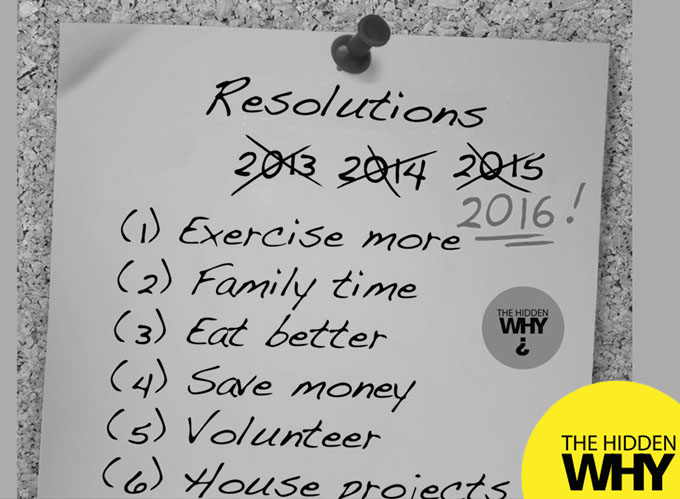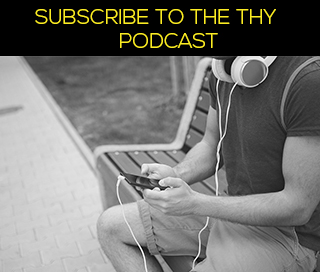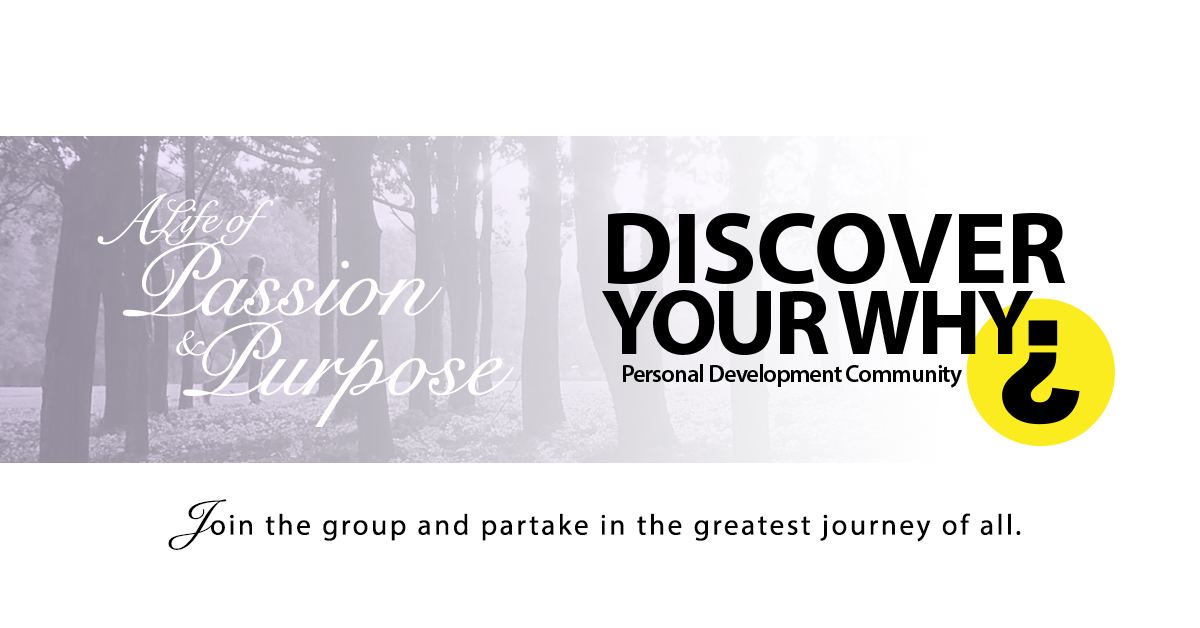
A Powerful Habit Changing Process in 5 Steps
“We are what we repeatedly do. Excellence, then, is no an act, but a habit.” Aristotle
The New Year is here and for many of that means we have set some goals for the year and come up with action plans to take us there. The New Year marks for us new beginnings and a chance to make some changes, to transform and develop a new and improved self.
If everyday you can make yourself that little bit better just imagine what you will become over a lifetime of continual improvement.
It’s something about the first of January that for many of us represents a fresh start, a clean slate to keep on track and to accomplishing everything that we so desire in life.
With new goals and visions it often means that we need to transform our life in some way. Out with the old in with the new! A large part of our success in completing these gaols is the creation of new habits and the desolation of some old ones. Sometimes easier said than done.
For some of us we will be cranking along well in connection with our new habits and goals and just loving every moment of it. For others we may be letting things slip already or maybe, just maybe, we have given up altogether. This is a crying shame but all hope is not lost.
When you stop doing those actions and building those new habits required to reaching your goals you would just continue along the same path as you did last year and as you did the year before that.
Previously I’ve had the same goals written down year after year and still never got closer to changing the habits or implanting the new one. I was doing things all wrong!
I am no guru in the art of habit changing however I have interviewed a number of successful people, who are greater masters in this arena than I, who have shared with me their techniques and tools that they use when it comes to setting new habits and breaking the old.
I myself have also created many solid habits over the last several years that I am proud of accomplishing and also worked hard at changing some of my not so good habits.
Still not perfect and still trying new things in efforts to constantly improve myself yet have learned a heck of a lot. These lessons and tips I would like to share with you.
Here are the 5 steps in making those powerful habit changes to help you achieve more in 2016 and certainly in life.
The Power of the 5 W’s
It is through the power of questions that come incredible change. So often do we do things yet without asking any questions as to why we are doing them.
I realise now that for many of my past New Year resolutions this was a fundamental flaw behind my plan and the reason why I failed to be achieve many goals and habits that I set.
I have listed some questions below that allow us to put many things in every day life into greater context: what, when, where, who, why, how.
These questions really help us deal and understand the problems that we have and upon deeper analysis can we uncover some greater solutions. It is these solutions that are going to be critical for us in habit formation and goal completion.
For some habits it is easy enough to change and implement without too much planning or thought however for many it is simply not enough. We need to be clear with the intention, we need to gain clarity, and we then need to plan to succeed.
The issue is that our current behaviour and habits we already have a pre-built in like super neural highways and therefore can be extremely difficult to deviate from.
It would be like choosing to drive your car along an unformed new road to try get to where you are going when already next to it a highway exists. However as you continue to take that rocky and challenging road the track will improve and so will your neural pathways.
Take time with these questions, get into your own space to brainstorm and reflect upon them all. Write down your ideas and responses to these questions, sometimes when you take it out of your head and place it on paper it will help to gain greater clarity.
The critical question here is why. Why is it that you really want to set out to change or implement a habit? What is the deeper reason and intention? When you know this and really begin to vision this it will help you stay on track in times of adversity and struggle.
It are during these times you can reconnect with your why to help regain your strength. When you have a strong reason for doing something it will be much easier to sustain it.
When you try to build something that is difficult and you don’t really know why you are doing it you will become less motivated and less likely therefore to continue. It is the same as building new habits and neural pathways there must be reason.
The plan is also very important part of this first step, the what, when, where, how and who. All these parts help you gather ideas to help make the actions you need to take almost fool proof.
The reason for why many of us fail with the habits we wish to make or break is due to a lack of planning and without real reason for doing so.
Become clear on your why and your plan for doing it and start visioning it every day until it becomes so clear and purposeful it will be impossible to break.
What: What are you trying to change? What’s the goal? What is the action or actions you need to take?
When: When will you start? When will the action be carried out, how often and an what times of the day or week? When will you have successfully implemented or changed the habit? What does this look and feel like?
Where: Where will these actions happen? Where do you need to be to do the new action?
Who: Who is it for? Who, if anyone, can be apart of it? Who can be your motivation, your accountability? Who will you share this with?
Why: Why are you doing this? What is the bigger goal, what is the deeper reason?
How: How will you do this? What techniques or tools will help you to do it? What do you need to make sure how you do it is achievable?
Motivate & Manage
Motivation is short bursts of reason. You can motivate yourself in a number of different ways these days to pump you up, get you energised and on focus to help you achieve what you want to achieve.
Motivation is short lasting and will fade, which is why it’s good to try to incorporate daily motivation into your life. In this way you will be continually reminded and energised to push through the new challenges you face to so that you to stay on track.
There are places you can go to that may take up a bit more of your time but certainly great ways to increase your motivation in getting something started or in gaining some much needed clarity.
These may include seminars or reading a book. You might even find some videos or online media to help build and strengthen your vision and reinforce your reason why.
Surrounding yourself by like-minded people is a fantastic way to keep your motivation levels high. You can get mentors, coaches, accountability buddies, or even join a club or mastermind group.
There will be great accountability here but also many of these people will also be on the same path as you are or certainly at some stage were.
For those daily shorter bursts you can find audio, podcasts, YouTube clips, or by signing up to some positive daily emails from your hero’s.
These are sometimes the best quick pick me ups that at times you will need while on your journey to incorporating your new habits.
All the motivation in the world may not help however if you come unstuck and loose sight of what it is that you set out to do. This is why it’s important to really manage the new habits.
By managing you need to reflect back on the first step and measure how it is all going. What is working, what’s not working?
Is it still something you truly and deeply desire or was it simply driven by some part or need to please your ego or certainly someone else’s?
Its not an excuse to give up or escape from what you set out to achieve but rather a chance to reconnect with your intention, further clarify and vision where the new behaviour will take you and what may need to be adjusted to help the plan come together with even greater ease.
Motivation is a great form of energy to pump you up yet like New Years resolutions I have experienced and seen others leaving motivational seminars but only a few weeks lost all enthusiasm. There was no deeper connection to the reason why.
Use motivation as a tool to keeping your motive alive, for taking action and for sticking to the new path of habit transformation.
Cultivate Discipline
How can we cultivate discipline and what is it?
“The ability to do what you know you should do, whether you feel like it or not.” Brian Tracy
The successful people in this world know this. Regardless of the circumstances they take action to do what is required to reach their goals and accomplish all that they desire.
If creating disciplines in life were that easy we would all be ultra successful but that is not the case. Being disciplined is hard, its painful, at times it is straight out boring, monotonous and tedious.
The options not to do what we have set out to do are much more attractive. They are generally easier options and don’t require as much pain, if anything the alternatives that exist are somewhat more enjoyable and pleasing.
The question that you need to ask yourself in those moments is, “will doing these activities stop me from progressing in the life I desire?” We all have choices in life and in all that we do so the question is which path will take you where you want to go?
Cultivating disciplines is not easy but it is very possible. We can all train ourselves to do something in a consistent and habitual way enough so that it becomes a disciplined behaviour.
Practice creates perfection as does consistent behaviour create great disciplines.
To master any behaviour with amazing discipline that it becomes an effortless habit we need to connect at a deep emotional level with what it is we wish to do. Your mental toughness will determine your ability to create a disciplined approached to the newly desired behaviour.
A disciplined practice is so often associated with pain and punishment and when starting something new it is often the case. The habit we wish to change is likely something in which you have to force yourself to do against your own will.
You may consider yourself disciplined in many areas of your life but in other areas you may struggle. You may feel that you have no discipline what so ever and that’s ok because we can fix that.
The truth is that nobody really likes doing things they dislike. Yet the difference is that the successful know that by doing what it takes now and fighting through the pain we will have greater results in time. It’s the price you have to pay.
The thought of waking up particularly early to lift weights until your body is sore is not considered more favourable that laying in bed on a cold winters morning. Only those in who have created a strong discipline in this area over many years may disagree with that statement.
The point is that we have a choice and when creating new habits in life the choice is clear. Do you take the easy route for the day or do you endure the pain knowing that only the second option is going to help you accomplish the goal that you set out to achieve.
This is the mental toughness you must to create to stay focused and on track to achieving your new habits. Whenever you’re tempted by the more instantly pleasing option know that it wont get you to where you want to be, it will only delay you.
The better you carry out the previous steps the more likely it is that you will succeed in cultivating a strong discipline in this newly desired behaviour.
Knowing why you are doing it and the bigger purpose is critical in overcoming the obstacles you will no doubt face as you implement the new behaviour.
Whenever that thought to do the alternative and avoid the thing that you must do connect with this reason. Remind yourself what its all for, what is your why.
This should be enough to get you going however if it is not than perhaps you need to rediscover your reason because at the end of the day if your not doing it you’re truly not that committed to reaching the goal.
When you say your going to do something you do it. If you value integrity than stay true to your word, even if this means only to yourself. Don’t break this self-trust.
By announcing what you set out to do to the world is a great way to stay true to your word if you find it difficult to do this then find a buddy that you can tell it to.
If you cannot public announce it you may not really have the commitment to the goal from the outset anyway, or you may just have a fear of failure.
Try not to be afraid of failure. For some of those harder habits you wish to create it may take several attempts. And those that judge you in time of failure most likely are insecure in their ability and attempts to create positive behaviour transformation and change within their own life that in judging helps protect their self-pride and ego.
Connect with your why, commit to your word and stay focused. The what, when where and how are also critical supports in your ability to hold true to your commitment and help strengthen your discipline.
The easier you make it to adopt the new behaviour the more likely it is that you’ll succeed. Your plan on when to do it will matter and may need to be moulded as you learn and grow into the new habit.
If what you do and how it is done is complex or difficult the easier you will be persuaded to not do it so make it simple! Start out small and as your confidence and ability grow build upon your discipline.
Jumping straight in the deep end may just lead to burn out and failure. For some however this is a very quick way to learn to swim and build quickly last neural paths.
Remove those distractions and temptations around you. These are likely to only torment you. Remember that with fewer distractions you will be faced with fewer obstacles and that will help you to stay running steady in a straight line toward the goal.
Finally on discipline is to not make excuses. Remove excuses from your life. If it’s raining and you need to go for that run you go. If there is a party and it’s been 8 weeks since your last smoke don’t trick yourself into thinking one wont hurt.
Discipline comes to those who remove excuses from their life. When you know you should do something you don’t make an excuse and do something else because nothing could possibly be more important. Just remember why it is you are doing what it is that you must do.
Consistency & Persistence
These 2 words carry great significance in life and when you come to setting new habits or changing the old their relevance is with no less importance.
To be consistent and persistent in life will assist you in creating powerful disciplines and ever lasting success. These two words alone are the reason why so many of us never achieve all that we wish to in life.
Being consistent with your approach towards you new habit is critical in sustaining success!
When you break consistency once or twice it may be easy to get back in consistent flow but break it for too long a period or one too many times the mental toughness required to get back on track will become harder and harder to the point you give up or don’t bother altogether.
When you are inconsistent in approach it usually means what you do has less significance to whether you do it or not. It tells your conscious mind that it’s ok to not do that certain task, activity or behaviour.
It is difficult for your subconscious mind to battle with what is understood on the conscious level.
When your conscious mind believes that its ok not to do what it is you should be doing it notifies your subconscious mind of this. You subconscious will then question if your why or reason for doing what you should be is that important.
Your conscious mind needs to support your subconscious mind in achieving what it is you set out to do. If it does not your attempts to cultivate discipline around the new habit will be a lost cause.
Strong habits are built with consistency. The more consistent you remain the better the discipline becomes and this allows you to overcome future hurdles with greater ease.
If you slip than get back up but if you slip one too many times in a row than you need to revisit your reason and purpose for doing so in the beginning.
Persistence is also a favourable quality. It is often the case that results for the new habit may go unnoticed for some time. In a world trained and conditioned to instant gratification this is a difficult quality to uphold.
The reality is that nothing is achieved with out effort and time. The greater the thing that you set out to achieve the more effort and time likely required.
It is knowing this that even in times of struggle, adversity and conflicting messages from the opposition that you push through and continue, focused and on track. That is true persistence.
For what you set out to achieve, time and effort will be a necessity. Setting your expectations and then managing these from the onset is key to being able to stay persistent with your approach.
It is when your expectations are not aligned with reality that you are confronted with disappointment. It is in your planning stage within these steps that realistic expectations must be set and understood.
Know that what you do will get you closer to the end goal. At times you may need to adjust your overall approach but remain persistent and you will reap the rewards.
The alternative to give up in favour of the path with greater ease may tempt you but don’t be swayed. Stay consistent in what you do and continue with great persistence. The rewards will be much more grand.
Feel & Reflect
Throughout your journey of changing behaviours and creating new habits it is good idea feel and reflect on how the process is working out. One of the best ways to do this is through the practice of silence or meditation.
This is time were you can relax in a peaceful setting and connect with your mind. Try breathe deeply and as you do visualise the forming of the habit and what it looks and feels like having mastered it.
This is a moment for both your conscious and subconscious to recognise any discrepancy between where you visualise yourself to be and where you currently are. When this occurs they will be able to work, as if without great effort, to close this gap.
Through this process also you will be reminded of why you are doing it and the true purpose behind the desire of the new habit. In a calming environment and with a relaxed mind it is much easier to feel and reflect on how you are progressing.
It may also however be a time to measure your results and fine-tune your plan. What is working and what’s not working? Are there ways to improve your methods or what could be implemented to help you excel further?
Remember when measuring your success that you may not notice amazing results early on but you certainly should be able to feel more comfortable and aligned with the new behaviour. It shouldn’t be as uncomfortable and painful as when you began and it should fill you with a sense of happiness and pride. It should start to feel good.
When you reflect on where you are in your progression do not compare yourself to others. A benchmark of your success against another’s is never an accurate reading but rather a challenging perception. We are each on our own journey.
As you become more involved in your new plan and keep motivated you will discover and learn new information that will also help you to improve and better your practice.
In your efforts to stay motivated, energised and charged you will learn about many different approaches that others have adopted for the same behaviour. Be open minded to these approaches and willing to experiment with them also.
If is likely that you may find that what works well for someone else doesn’t for you and that’s ok. Don’t be disheartened by this or give-up but rather try another approach.
Not everyone is a fan of meditation in its simplest form however there are alternative practices that offer similar benefits and affects. Find what works best for you.
Taking this time to feel and reflect on your new practice and habit is an important part of the overall process and allows you to stay connected with the ultimate purpose.
The formation of new positive life habits is not always an easy feat however through this process you will be able to create long lasting and sustainable habits that will be life changing.
I encourage you to take the time with this and hope you enjoy the journey, benefits and success that come with your new habits.
Please leave your comments and thoughts on these steps. Also if you need help or further clarification please reach out to me. If they have helped create lasting positive habits within your life I would love also to hear about the results.
FIND YOUR HIDDEN WHY with THE HIDDEN WHY (THW)
BUILD YOUR LIFE AROUND YOUR PASSION AND LIVE WITH PURPOSE
Sign up for free below and receive cool stuff from me each week + Plus a free copy of “The Four Pillars of Success”
In my weekly emails you will receive ideas, thoughts, learning’s and inspiration on:
- How to design a life that you want and live by your terms
- How to live a life with passion & purpose
- Methods, strategies, & techniques on life hacks
- Messages on how to better live your life
- We will also keep you up to date with fantastic interviews from THW podcast













Leave a Reply